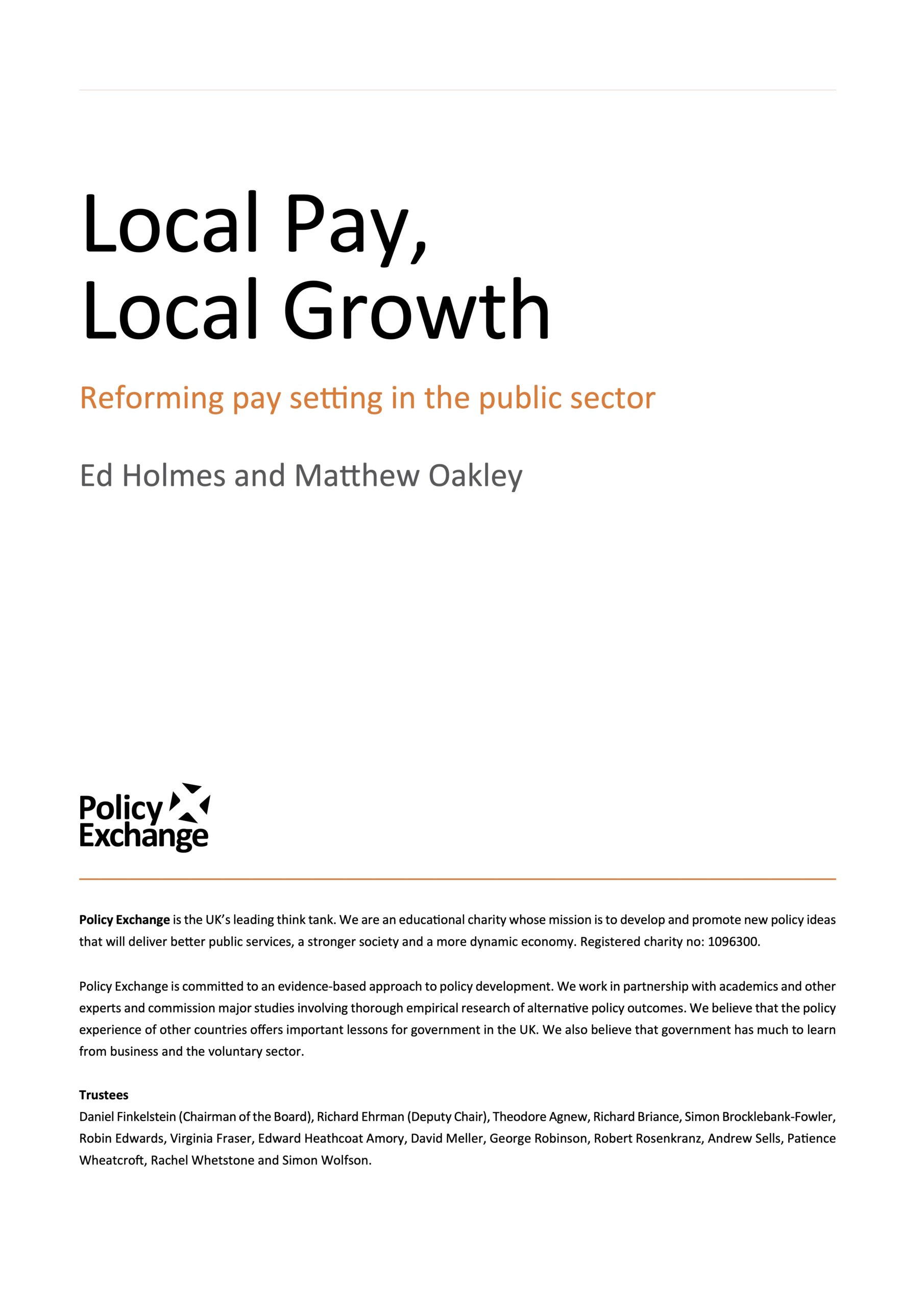
Local Pay, Local Growth: Reforming pay setting in the public sector
Rebalancing the pay and pensions of public sector workers so that they are in line with that of equivalent workers in the private sector would save the UK £6.3 billion a year in public spending. This money would be better spent on tackling local unemployment and could create at least 288,000 private sector jobs – or the equivalent salaries of 332,000 more nurses or 252,000 more teachers – in some of the areas of the country suffering most from the impact of the recession.
The report – Local Pay, Local Growth – says that the public sector ‘premium’ – the additional pay a typical public sector worker receives over a private sector worker – now stands at around 7% for the average worker. Combined with increased generosity in pensions the total ‘premium’ is nearly 14% for the average worker in the public sector. In some parts of the country, some public sector workers are seeing premiums over their private sector counterparts that are as high as 25%.
The report, co-written by a former Treasury civil servant, argues that this situation has arisen because of the system of national pay bargaining, which means that workers are paid the same amount regardless of where they live. It recommends abolishing this system and enabling local public sector employers to choose systems of pay that reflect local living conditions and vary pay awards by the performance of employees.


